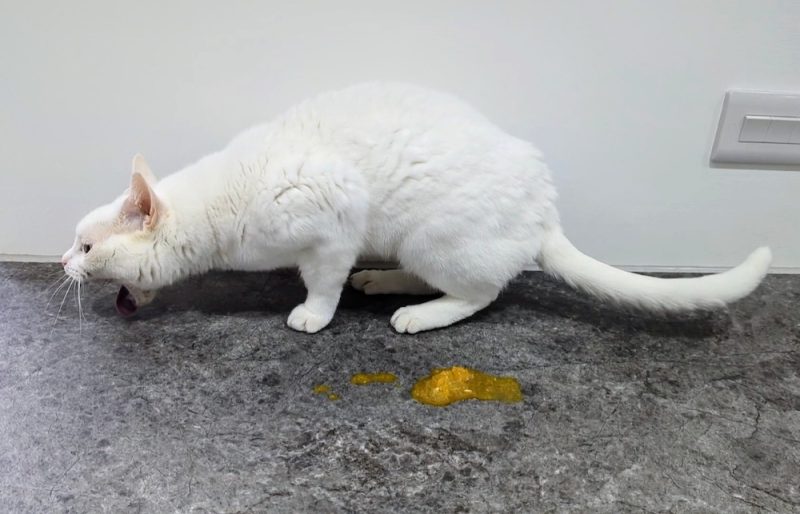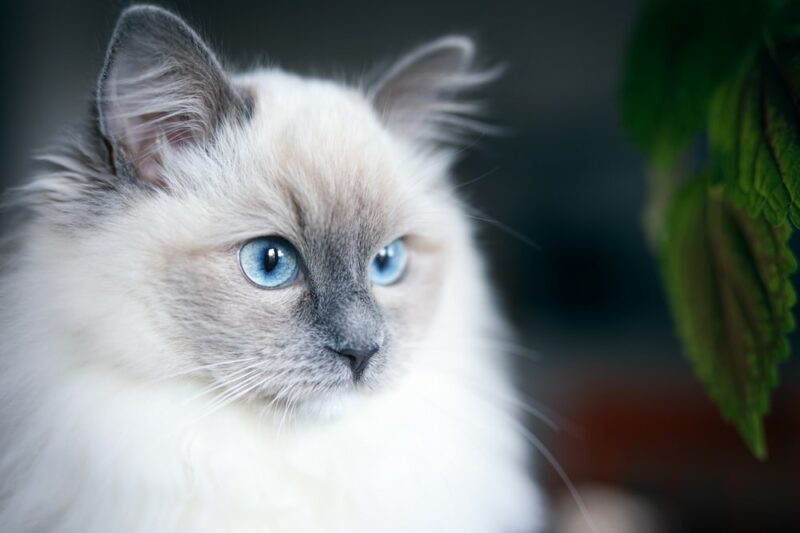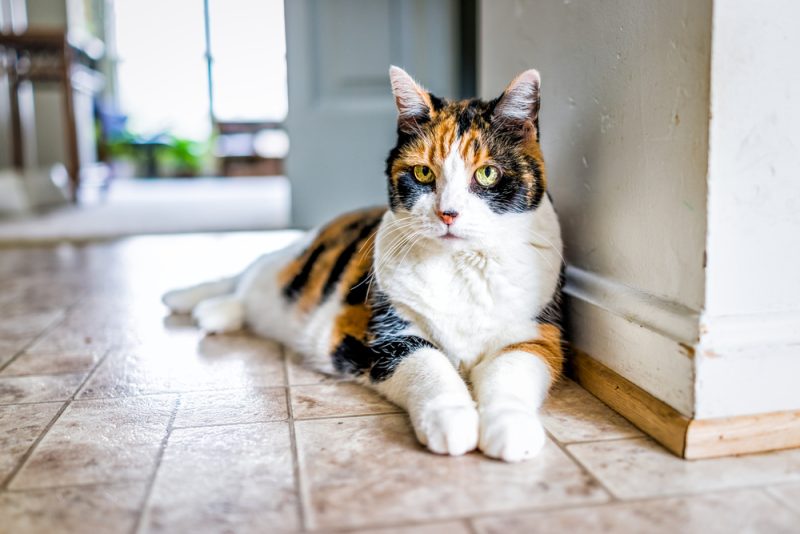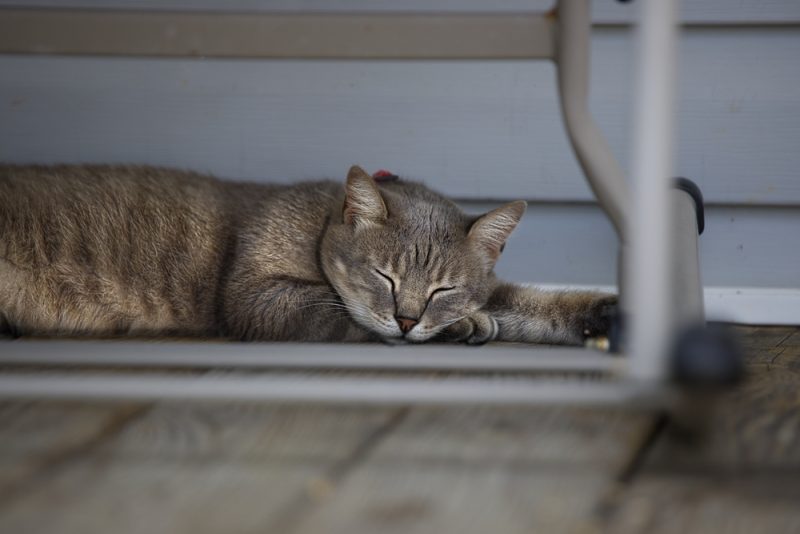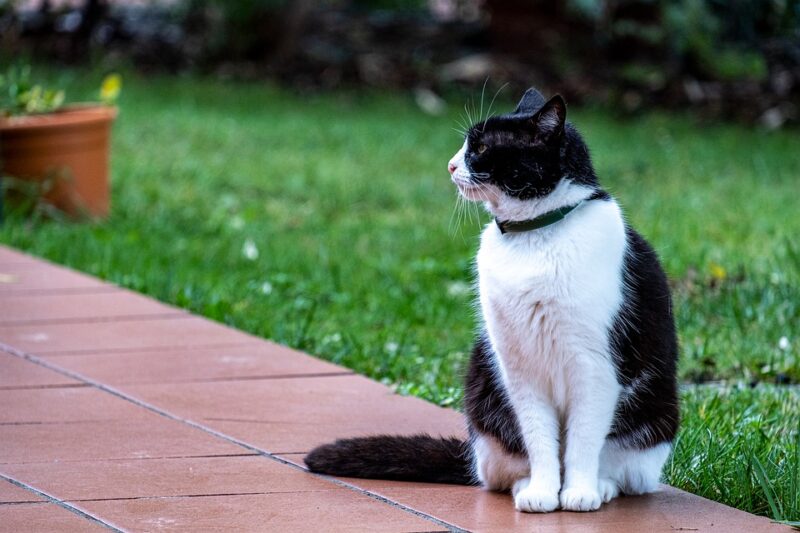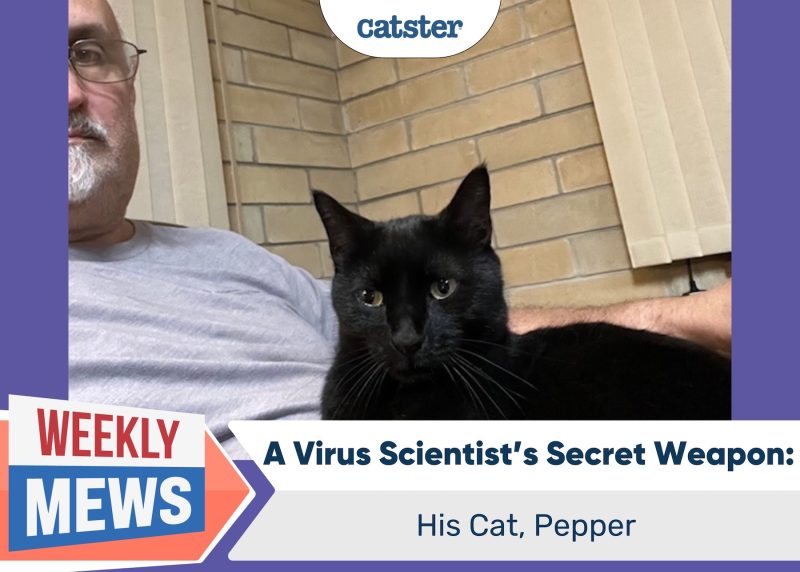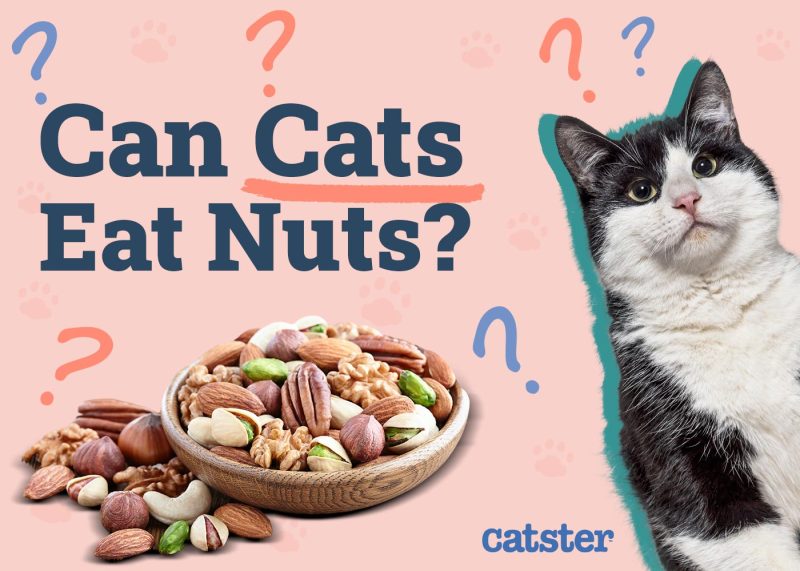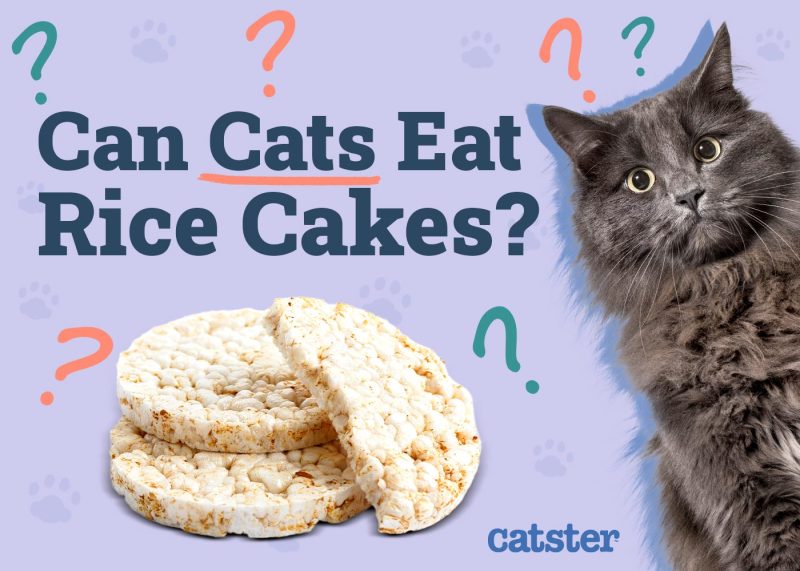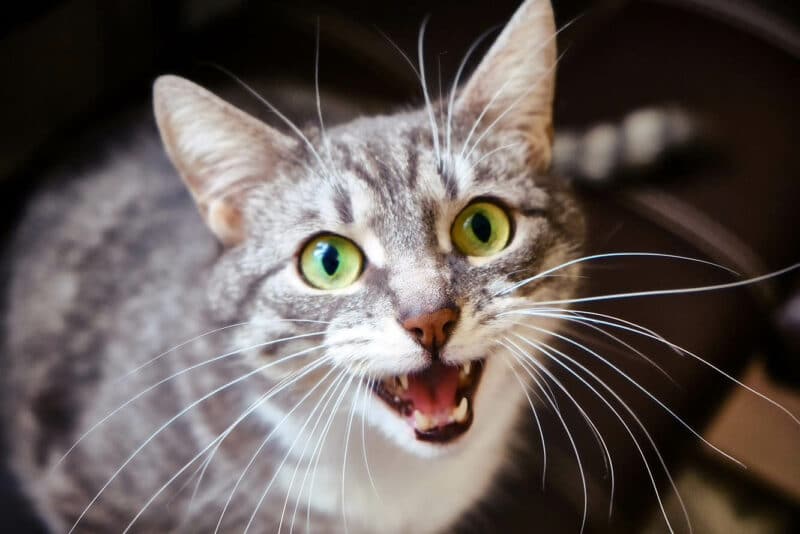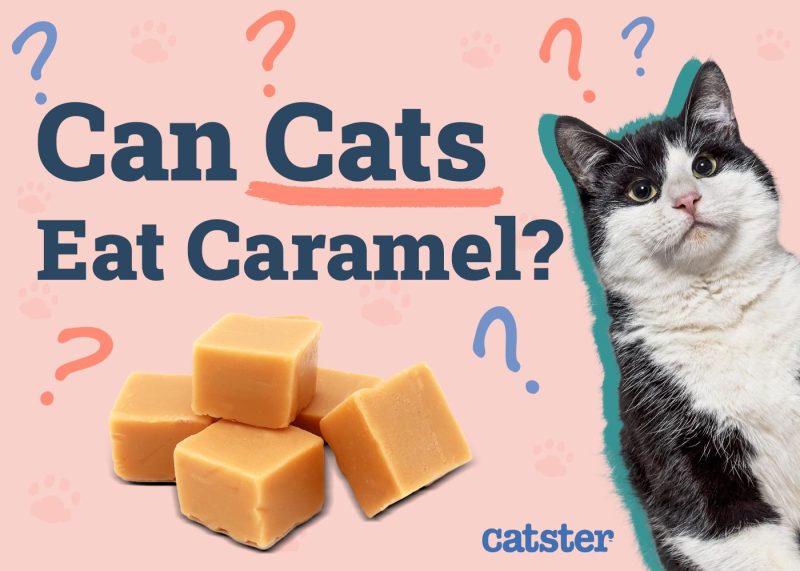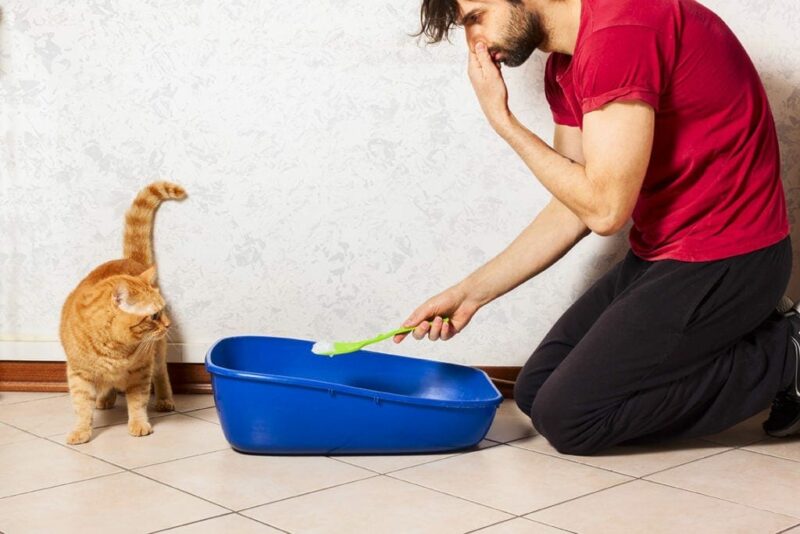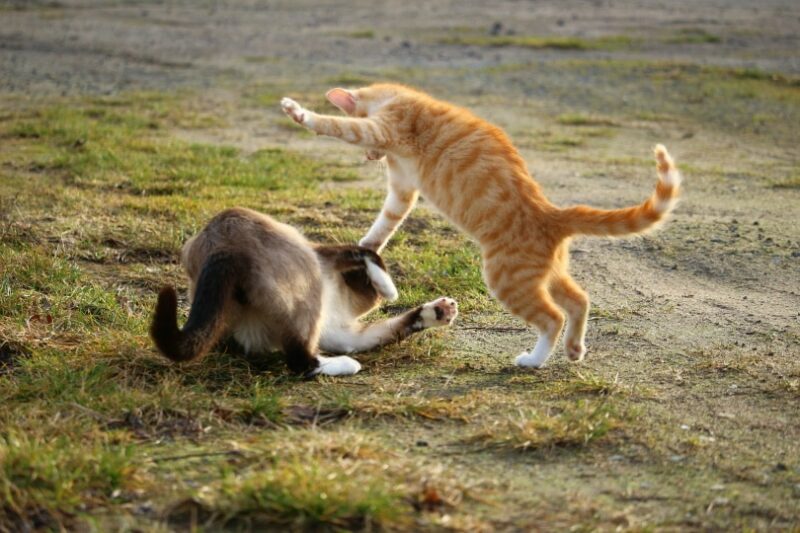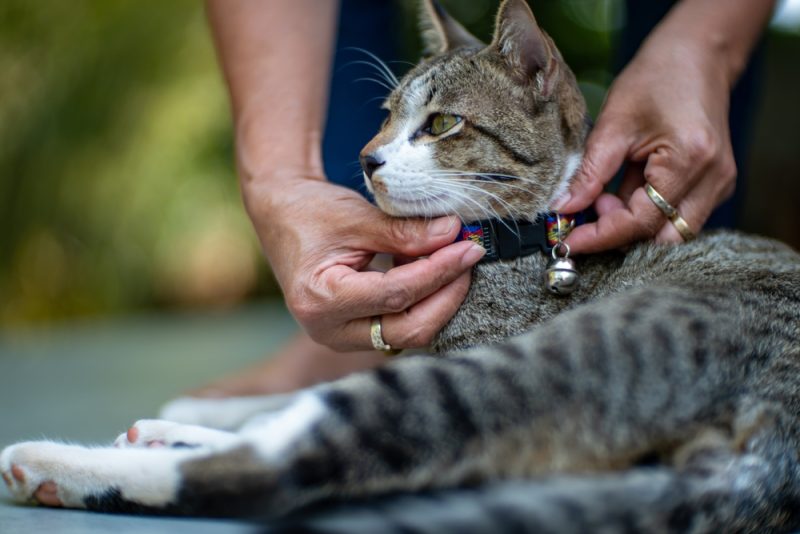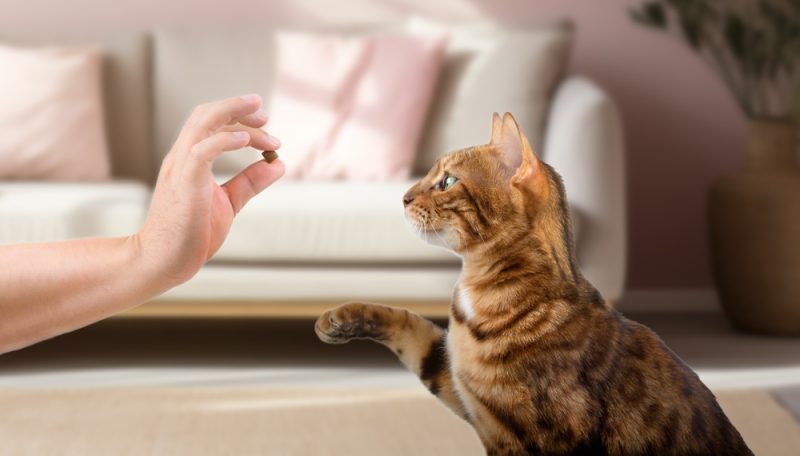Hi, I’m Dr. Karyn! Read my introduction to learn more about me and meet my five hilarious cats: Clutch, Cyril, Alex, Zelda, and Zazzles.
Ask me what gets me leaping out of bed like a kid on Christmas morning:
It’s not the fire alarm or a dog barking, and it sure as hell isn’t the alarm on my phone. No, the one thing that will have me – and any cat owner – on my feet and wide awake is the guttural urgings of a vomiting feline.
Now, I don’t know if it’s a female, pre-programmed maternal thing (I don’t have children), and cat Dads out there, please let me know if I’m wrong, but why is it that I can go from sound asleep to rushing my cat towards a hard surface in less time than it takes my husband to roll onto his other side and continue snoring? There was one near-miss situation where Zazzles, who prefers to haunt our bedroom in the night, decided to initiate her digestive evacuation sequence from a convenient location on top of our bedhead. Reece (the aforementioned husband) vociferously objected to being disturbed from his slumber, so I have promised that next time I will allow the cat to vomit on his sleeping head. Unfortunately, this specific situation has not yet repeated itself.
I’m sure you’ve all found yourself in similar situations and would probably like to know
- Why do cats vomit so often?
- How often is too often? And….
- When is a vomit not a vomit?
Please, join me on a little journey as we look at the ins and outs of feline emesis.
When Is a Vomit Not a Vomit?
Regurgitation, Vomiting, and Coughing Up a Hairball
One benefit of having five cats at my disposal is that, inevitably, one of them is going to exhibit one, more, or all of the weird and wonderful feline behaviors that we all know and tolerate. Clutch has mild inflammatory bowel disease (IBD), and will periodically favor us with his digestive pyrotechnics, mostly due to his habit of stealing food that is not part of his prescribed diet. If you check out my video, you might notice that his technique is slightly more subdued than the violent, noisy stomach heaving we often see our cats engage in, possibly because he’s quite well-practiced. But, he does still show us the classic abdominal contractions that exemplify vomiting.
Sadly, regurgitation is not so easy to capture on film, as we rarely get advanced notice that it’s going to happen (I say sadly because, in the absence of a feline model, I had to do the demonstration for the video). One of the main distinctions between vomiting and regurgitation is that abdominal involvement is absent or very minimal, and what is produced closely resembles that which went in. So much so that many cats will happily have a second attempt at eating it, unless the dog gets there first. Regurgitation happens when the food (or object) swallowed is rejected before it enters the stomach, so it comes out in the tubular shape of the esophagus. In most cases, it is the result of eating too quickly, or due to an accumulation of hair (a ‘pre-hairball’) in the esophagus. There are some more serious causes of regurgitation, and if you want to know more, check out our article on Cat Regurgitation vs. Vomiting.
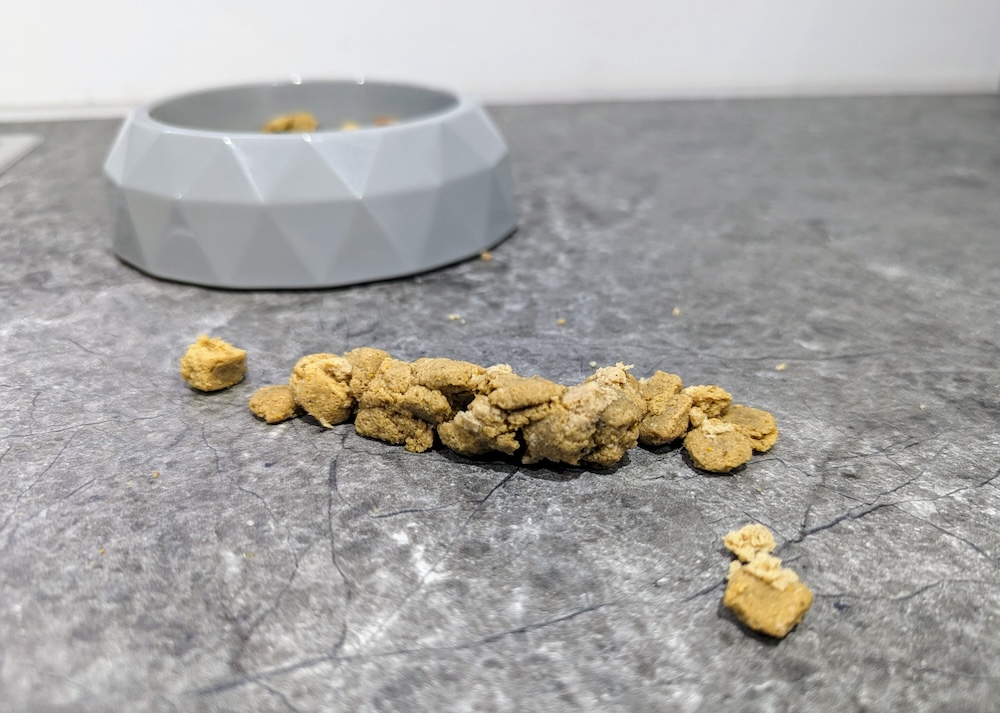
Speaking of hairballs, when you watch Zelda on our video, you can see why it is often referred to as ‘coughing’ up a hairball. The neck outstretched and head held low, accompanied by the raspy, wheezing cough, certainly looks like a respiratory problem, but this posture is classic for trying to bring up a hairball. So why is it so different from vomiting or regurgitation?
If a hairball reaches the stomach, it is usually destined to continue on a one-way journey towards the exit. However, if the hairball gets stuck going into or out of the stomach, or in the intestines, we may get regurgitation, vomiting, or constipation as a consequence. The coughing happens when there is hair accumulating higher up in the esophagus, irritating the pharynx, which is where the oral cavity, nasal cavity, esophagus, and trachea converge. This triggers the classic hairball cough but doesn’t always result in the ejection of a hairball, because there may not be one yet. Hairballs accumulate over time, much like hair in a shower drain. You don’t get a blockage after one shower, but over a period of time, the hair attracts more hair and other debris until you get a solid, slimy mass. When you see a classic hairball on your carpet or bed (which often alarmingly resembles a poop, especially if it is the raven-haired Zelda’s handiwork!), this hairball has usually been vomited up; the hairball cough is generally non-productive. So if your cat is doing the hairball cough, it’s a good time to be a bit more proactive about dealing with them before they become a more serious issue.
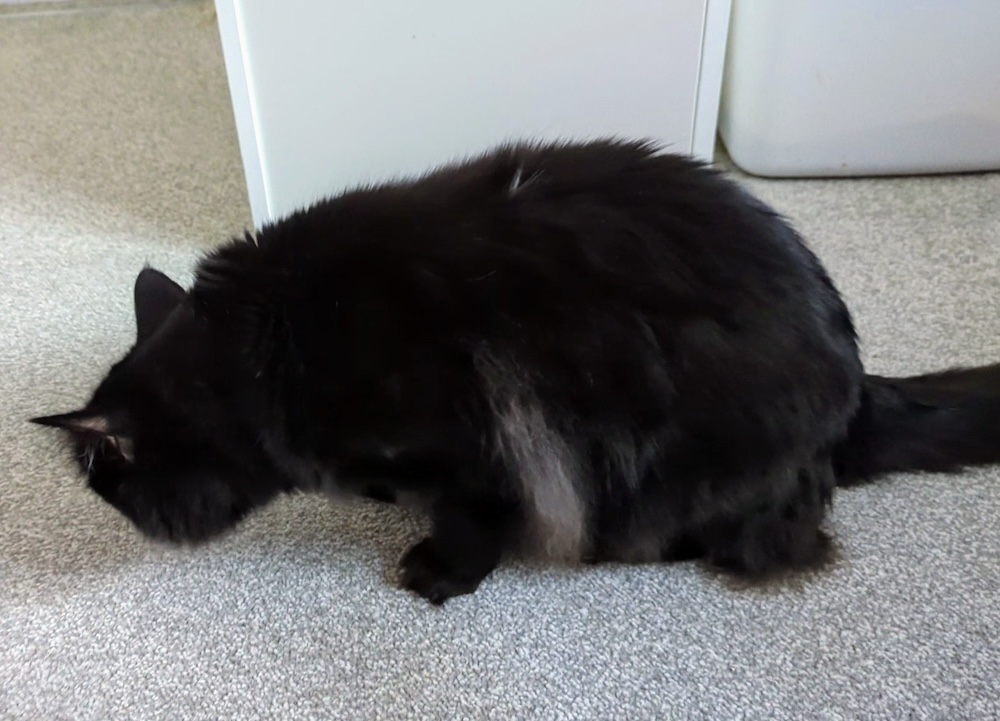
Why Do Cats Vomit So Often?
There are lots of different reasons why cats vomit, and, although it may seem like it sometimes, it’s not to annoy us! Vomiting can be a sign of serious illness, so it’s not something to take lightly, but they do seem to do it more often than dogs, and some cats do it more often than others. I have had two “vomity” cats; one who died of old age several years ago, and Clutch. Both had extensive investigations (bloodwork, x-rays, ultrasound), and both had completely normal results. I was able to manage their conditions by keeping them on food for sensitive stomachs, but they were still prone to the occasional flare-up, and Clutch vomits up hairballs more often than he seems to pass them in his poop.
Cats can also suffer from pancreatitis and a condition known as triaditis, which can cause gastrointestinal upset and vomiting. Research has shown that more cats likely suffer from this condition than we realize, but in many cases, the signs are mild enough that they either don’t end up at the vet, or they recover before more specific diagnostic tests are performed.
The hairball factor is also likely to be a major contributor to the vomity cat scenario, as these slimy little objects can cause temporary blockages and slow everything down, causing vomiting or regurgitation that resolves as quickly as it appeared.
How Often Is Too Often?
This is a tricky one to answer because I don’t want to tell you not to worry if your cat is vomiting. Technically speaking, any and all vomiting is a sign of a problem, and when in doubt, it’s always better to check it out. I can give you some tips as to what I would consider to be an acceptable vomiting/regurgitation/hairball situation, but do bear in mind that every cat is different, and what is considered ‘normal’ for one, may not be normal for another.
I’m Not Worried When
- Clutch (who has IBD/sensitive stomach) vomits once a week or less and is otherwise well and eating
- The other cats vomit once a month or less and are otherwise well and eating
- Any of the cats are ‘coughing up hairballs’ once a week or less
- Any of the cats regurgitate once or twice a month and are otherwise well and eating
I Worry When
- Clutch vomits more than once a week or seems unwell
- Any of the other cats vomits more than once a month, seems unwell, or goes off food
- Any of the cats are coughing up hairballs more often than once or twice a week
- Any of the cats regurgitate more than twice a month, seems unwell, or goes off food
- Any of the cats, apart from Clutch, vomits or regurgitates consistently every month, even if it is only once
- Any of the cats vomits or regurgitates more than twice in one day
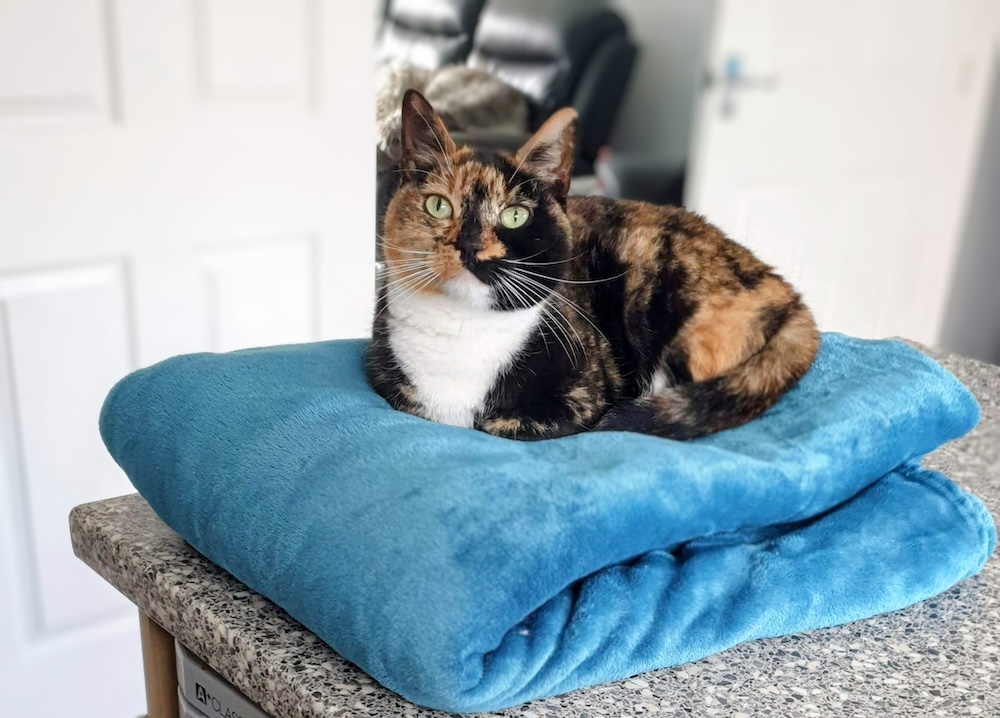
Ways to Make Life Less Vomity
So now you know that life with cats will inevitably include a little bit of vomit occasionally, but that doesn’t mean we should just sit idly by. If you’ve noticed an increase in your cat’s upchuck frequency or consistency, but they seem bright and well and are eating and drinking normally, there are a few things you can implement to improve their gastrointestinal performance:
- Extra grooming to reduce how much hair they are ingesting.
- Different food – if you think their current food isn’t agreeing with them, there are thousands of different options you can try – raw, fresh, hairball diets, sensitivity diets, freeze-dried foods… talk to your vet about what they suggest, and remember to always transition onto a new food gradually. You don’t want to make things worse!
- There are pastes, oils, and supplements to help support a healthy digestive system and eliminate hairballs, some available over-the-counter or online, and some your vet can prescribe for your cat.
Do take comfort in knowing that it’s not unusual for the average cat to vomit, regurgitate, or bring up hairballs from time to time, but it is useful to be able to recognize which one it is. You know your cat better than anyone, and if you’re worried that something is wrong, you’re probably right, and it’s always better to seek veterinary advice.
If you need to speak with a vet but can't get to one, head over to PangoVet. It's an online service where you can talk to a vet online and get the advice you need for your pet — all at an affordable price!

In the meantime, I’m thinking about making an alarm clock that sounds like a vomiting cat – let me know if you want to invest!

- Read her previous article: What’s Happening to the Veterinary Profession? Dr Karyn’s Cynical View
- Read her next article: Never Too Old To Travel: Sully’s Big Adventure
